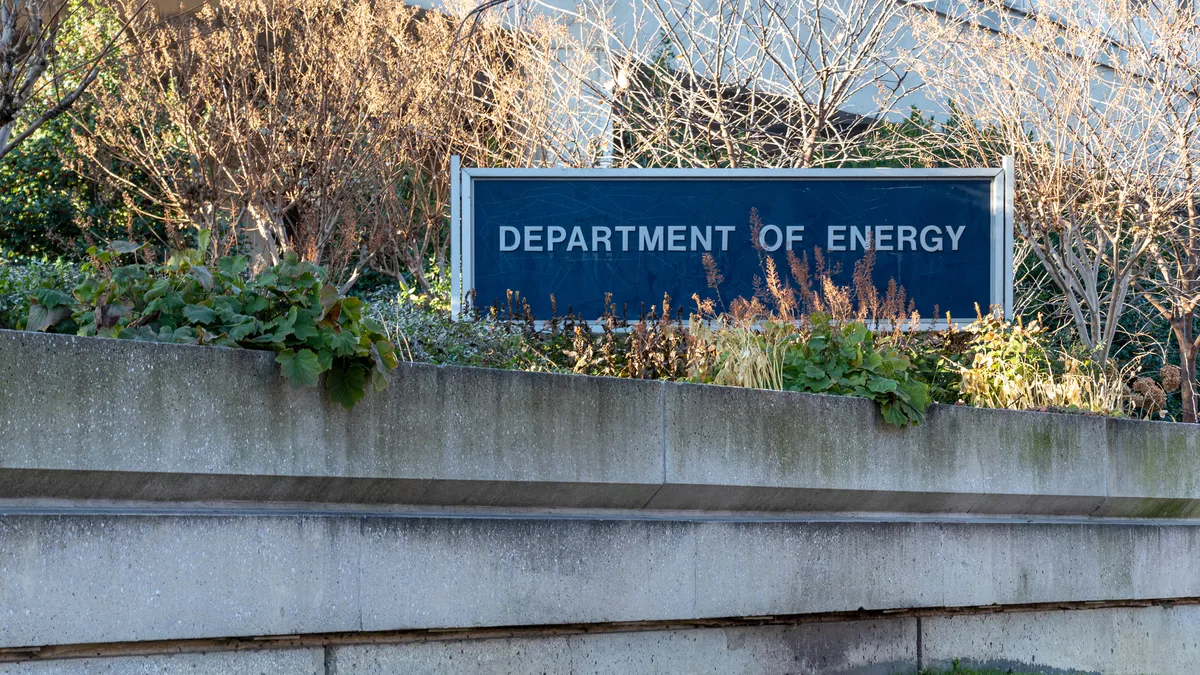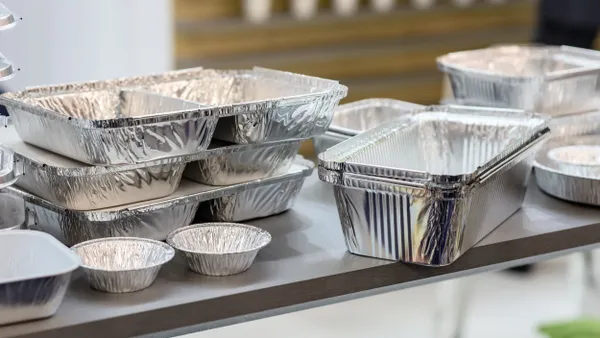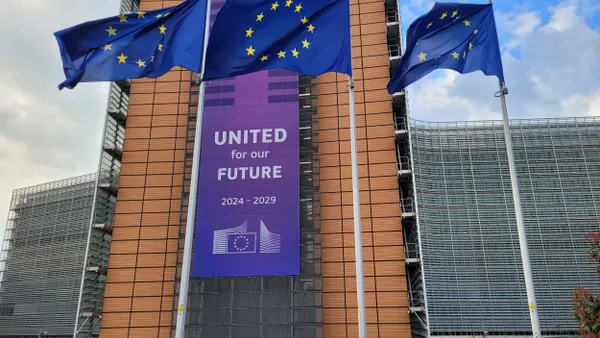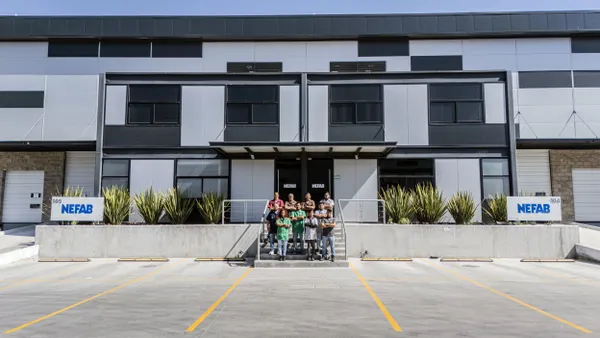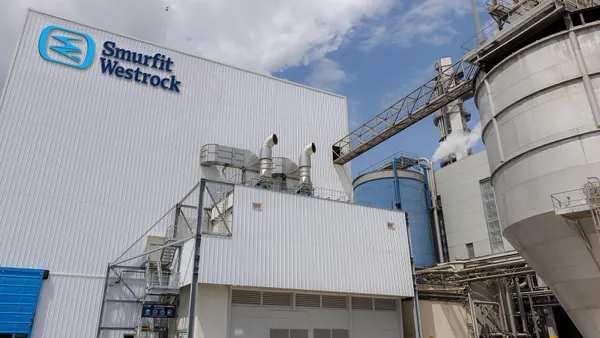The push to decarbonize glass, paper, aluminum and beverage production got a boost Monday with the U.S. Department of Energy’s announcement of up to $6 billion for projects in energy-intensive industries using funds through the Inflation Reduction Act and 2021’s infrastructure law.
“Many of the projects will deploy first-in-the-nation emissions-reducing technologies that have the potential for sector-wide adoption and transformation, multiplying the magnitude of the emissions cuts and supporting the future of U.S. manufacturing,” DOE said in a release.
The Biden administration calls it “the largest investment in industrial decarbonization in American history.” Nearly 80% of the projects are in disadvantaged communities, as defined by the administration’s Justice40 parameters, and each project must implement a plan for community and labor engagement.
“If done right, these projects can put us on the path to cleaner production of core products of the modern economy, while spurring the creation of good jobs,” said Christina Theodoridi, industrial policy director at NRDC, in an emailed statement. “Now, the hard work begins to ensure the selected projects are designed well, benefit communities, and don’t cause harm — and we’ll need a pipeline of private and public funding to ensure more of these projects can proceed.”
These are six of the 33 recipients, with implications for packaging:
- International Paper was awarded federal cost share of up to $46.6 million toward decarbonizing a thermal process at IP’s Mansfield, Louisiana, site. IP is working with Via Separations on the latter’s membrane-based technology that DOE says “would reduce 75% of carbon dioxide emissions per gallon of clean water removed during pulp production in this application.” DOE said that, more broadly, the project could “demonstrate the credibility of the membrane technology to scale across the 130 domestic pulp and paper mills and other industrial sectors, such as chemical manufacturing.” Separately, in February, International Paper was tapped for DOE funding for a carbon capture initiative in Vicksburg, Mississippi.
- O-I Glass was awarded federal cost share of up to $125 million to rebuild four furnaces across three facilities in Tracy, California; Zanesville, Ohio; and Toano, Virginia. The actions are estimated to reduce O-I’s scope 1 carbon dioxide emissions by 48,000 metrics tons annually, or an average of 40% across those furnaces and their production lines. Companywide, O-I’s total scope 1 and 2 emissions in 2022 added up to 5.84 million metric tons of carbon dioxide equivalent. “The project provides O-I Glass the opportunity to demonstrate the functionality of combining multiple technologies across different glass colors and container types,” DOE’s announcement states. O-I expects each project could support up to 300 construction jobs.
- Gallo Glass was awarded federal cost share of up to $75 million for a Modesto, California, project, in partnership with the California Energy Commission and others, to install a demonstration hybrid electric furnace to increase recycled content by 30% in the glass bottle production process. Gallo expects to use renewable energy from the local utility and reduce natural gas use by 70%. “Gallo Glass anticipates selling low-carbon glass bottles as a premium option, contributing to the decarbonization of a large portion of glass for California’s wine and spirits industry,” the release states. The effort is expected to create new jobs in glass production and local recycling, and Gallo plans to expand training programs related to the hybrid melting process. The project will also set up glass collection programs, and the company will collaborate with the city’s recycling coordinator on recycling education.
- Diageo was awarded federal cost share of up to $75 million to replace natural gas-fired heat with heat batteries powered by on-site renewable energy and electric boilers, creating 144 construction jobs at sites in Shelbyville, Kentucky, and Plainfield, Illinois. According to Diageo, it aims for those facilities to be carbon neutral by 2026 and 2028, respectively. “These upgrades would reduce carbon emissions by nearly 17,000 metric tons per year to decarbonize the production facilities for spirits, ready-to-drink cocktails, and Bulleit whiskey,” the DOE release states. The project, in partnership with Rondo Energy and the National Renewable Energy Laboratory, could establish “a highly replicable blueprint for how manufacturing facilities can integrate thermal batteries with intermittent renewable energy to achieve direct decarbonization while reliably and competitively delivering a consumer-facing product to market.”
- Eastman was awarded federal cost share of up to $375 million to build a plastic molecular recycling facility in Longview, Texas — its second such chemical recycling facility — which will support approximately 1,000 construction jobs and 200 new permanent jobs. The site intends to transform items like polyester trays and colored and opaque bottles into virgin-quality PET for packaging, film and other uses. The product is expected to result in 70% lower carbon intensity versus fossil virgin PET, thanks to implementation of thermal energy storage and on-site solar power. “The thermal battery technology at this scale represents a cross-cutting opportunity to electrify and decarbonize high-temperature process heat across industry sectors, and Eastman’s decarbonized material is commanding a green premium among consumer facing brands,” the DOE release states. Eastman said in its own release that it chose Longview “due to synergies with existing infrastructure and operations, favorable energy supply and footprint, and access to western and central U.S. feedstock pools.” The facility will have the capacity to recycle 110,000 metric tonnes of hard-to-recycle plastic waste.
- ExxonMobil was awarded federal cost share of up to $331.9 million for a Baytown, Texas, ethylene production project focused on replacing natural gas across high-heat-fired equipment with hydrogen, that would create 400 jobs. That ethylene could be used in packaging production. When fully implemented, the changes could help to cut more than half of the plant’s total emissions. “Demonstrating clean hydrogen fuel switching in the largest ethylene plant in the U.S. would help de-risk one of the most viable decarbonization solutions for large, existing industrial facilities, prove the use of clean hydrogen in industrial processes, and provide a pathway for decarbonizing the chemical industry, which is responsible for more than one-third of the U.S. industrial sector’s carbon emissions,” the release states. Multiple packaging companies have partnered with ExxonMobil on chemically recycled material for use in new packaging.
DOE explained that selected project leaders will enter a negotiation process prior to the agency issuing funding, which DOE could rescind. DOE will review and evaluate implementation progress, including community benefits, at points as the projects progress.



